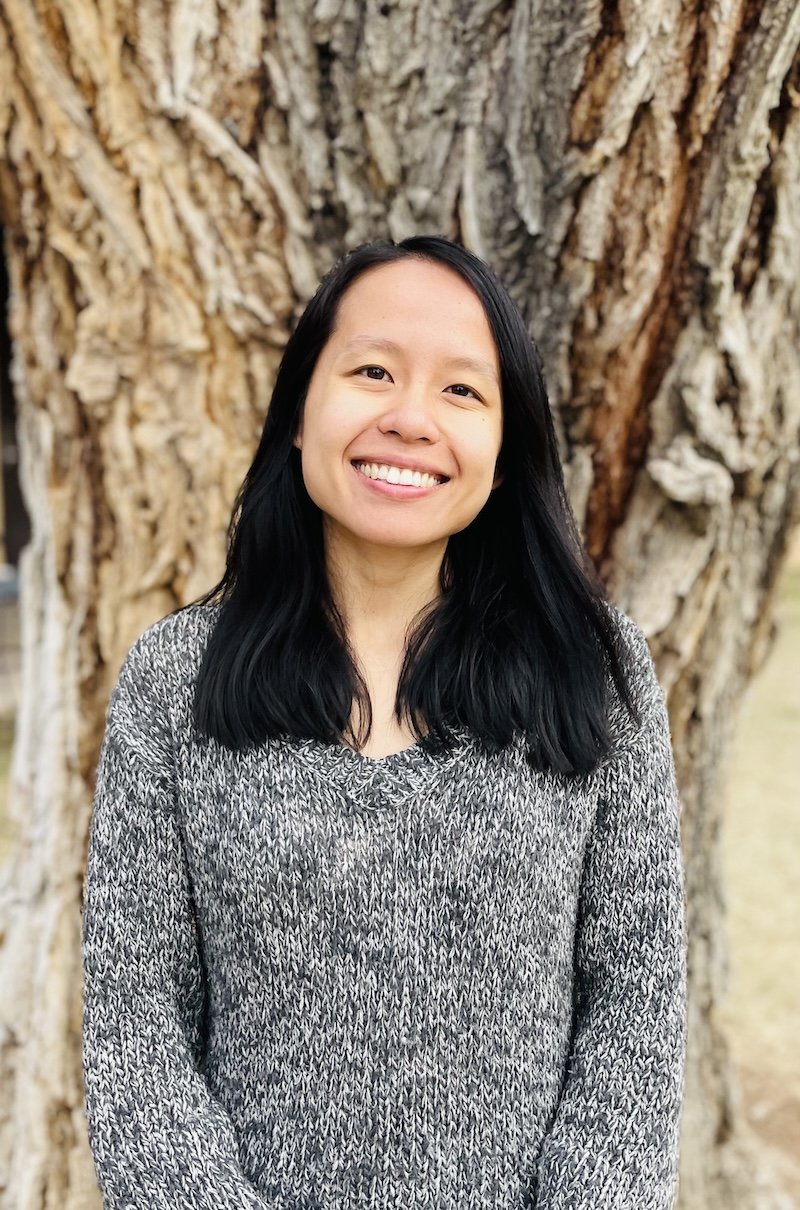For Late-Diagnosed Autistic Adults: How to Unmask after a Lifetime of Masking
Once you discover your neurodivergence, you may realize how much you’ve been hiding your true self. Let’s explore 5 types of unmasking, so you can live a more comfortable and authentic life.
TABLE OF CONTENTS 🔍
What does it mean to be a late-diagnosed autistic person?
“Late-diagnosed autistic” refers to folks who receive an autism diagnosis later in life, as adults.
Their autistic traits may have been missed in childhood, or misperceived as “just anxiety”, “sensory issues,” “behavioral challenges,” or other incomplete or inaccurate labels.
Related terms include: “self-diagnosed / late-identified autistic.”
These terms refer to folks who discover their autism / begin identifying as autistic, later in life – but have not received a formal diagnosis via the mental health system (often due to systemic barriers).
Folks who self-diagnose as autistic may later choose to pursue formal diagnosis, or they might not.
There is no hierarchy here: formal diagnosis and self-diagnosis / self-identification are all valid options. It is up to each individual which option makes sense for their life.
Additionally, late-in-life autism diagnoses may coincide with other discoveries, like:
ADHD, a neurotype that commonly overlaps with autism
an increased understanding of how complex trauma shows up in your life
shifts in your relationship to gender, sexual orientation, culture, and other identities
Though this blog post focuses specifically on autism, we acknowledge that all identities & experiences are interconnected, and nothing is happening in a vacuum.
>> To learn more, check out these blogs:
Masking & Unmasking as an Autistic Person
If you’re a late-diagnosed autistic adult, you’ve probably spent a lot of your life masking, knowing or unknowingly.
Masking refers to the process of hiding your neurodivergent traits & downplaying your needs in order to fit into a neurotypical world.
You may present as conventionally successful & “high-functioning*”... while navigating internal struggles that nobody can see and that few people seem to understand.
*NOTE: The term “high-functioning” appears in quotation marks here, to denote the language that folks often use to describe themselves & others. At the same time, it’s important to acknowledge that “high / low functioning” language is considered to be ableist language, due to its origins within eugenicist movements. In lieu of “high-functioning,” terms like “high-masking” & “low support need” are more widely preferred within the neurodivergent & disability communities.
Once you discover your neurodivergence (or have it confirmed via a formal diagnosis or self-diagnostic process), you may realize how much you’ve been masking this whole time. It’s common to feel:
disconnected from yourself and your true needs & wants
relieved to finally have some language to begin to understand yourself
confused about who you really are; like you’re questioning everything
burnt out from all the years of pretending to be someone you’re not
Here’s the paradox:
For autistic (and other neurodivergent) people, masking is a way to stay safe in a world that is often unwelcoming and unsafe for neurodivergent people. Masking is adaptive: it protects us from negative attention, judgment, rejection, and in some cases, violence. (This is especially true if, in addition to being autistic, you hold other marginalized identities, like being BIPOC and/or LGBTQ+.)
And, as helpful as masking can be, it also takes a huge toll on the nervous system. It’s exhausting. It can feel like holding your breath & never being able to fully exhale.
So, if masking is both helpful for social survival and possibly harmful for your nervous system, what’s the goal here?
The goal is not to be 100% unmasked all the time – because that might not be realistic or safe.
Instead, the goal is to be able to discern when it is safe to unmask, and when it is safer to mask. Maybe home is your safe space, and work is a place where you show up buttoned-up & somewhat masked – and that might be fine for you. For another person, an entirely different formula might apply.
What feels safe & authentic for you might change across time. How you unmask might change across time. No matter what, the goal is to experience choice & autonomy in how you navigate your life.
Unmasking is an ongoing, fluid, and non-linear process – not a checklist that you complete in one sitting.
For many, unmasking is an experiment in a new way of living.
Let’s explore 5 types of unmasking for autistic people.
Please note: this is not a comprehensive list, and not every example will apply to every person. Read with discernment and notice which options resonate with you.
(1) Unmasking sensory needs
learning to take your sensory needs seriously (instead of dismissing yourself as “too sensitive” or “weird”)
communicating your sensory needs & boundaries clearly to others (ex: “I prefer to eat at a restaurant with calm lighting”; “can we continue this conversation in a quieter environment?”)
prioritizing comfort over style; being okay with using sensory accommodations in public (like noise-canceling headphones, earplugs, sunglasses, masks, and comfy clothing)
redesigning your physical spaces (bedroom, home, work office) to be more comfortable
allowing yourself to stim, privately or in public; noticing how your body naturally wants to move, especially when you’re alone and not being perceived
making choices that align with your capacity, such as opting for delivery or takeout instead of navigating a stressful grocery store
avoiding exposure to sensory triggers, as much as possible (ex: certain lights, sounds, smells, textures, or tastes)
(2) Social unmasking
prioritizing your natural communication style – whether that means being direct, speaking literally, or asking for clarification around jokes & metaphors if you’re unable to read the “tone” of the conversation (hello, double empathy challenge)
allowing yourself to say “no” or “let me think about it” in response to requests & invitations – instead of the automatic, people-pleasing “yes”
allowing yourself to show up as you are (and trusting that the right people will want to connect with you!), instead of forcing eye contact & mimicking neurotypical behavior that ultimately exhausts you
limiting social interactions when you need recovery time
expanding your definition of what connection & community look like – including exploring your relationship with plants & animals, if human connection isn’t always accessible to you
discerning which relationships in your life feel supportive, and which ones feel draining – and making choices that honor your needs & authentic self
(3) Emotional unmasking
allowing yourself feel grief – for the years spent struggling without accommodations or self-understanding, or for the childhood you wished could have been softer & kinder
allowing yourself to express anger & other “taboo” emotions (especially in relation to ableism & systemic oppression that you may have experienced)
no longer forcing yourself to smile or “look happy” when you don’t feel like it; opting out of “I’m fine, how are you?” small talk
recognizing that “flat affect” or “lack of emotion” is a completely valid way of expressing yourself — you don’t have to “perform” emotions if you don’t want to
honoring your own emotional timeline; processing information at your pace, even if it seems “slow” or “delayed” to others
>> To learn more, check out this blog post: For Grieving Neurodivergent Adults: How to Care for Your Nervous System in Painful Times
(4) Unmasking your values
connecting with what matters to you (ex: family, friends, community, travel, adventure, nature, spirituality, health, creativity)
living in alignment with your values, even if it strays from conventional definitions of “success”
rejecting the social pressure to meet milestones (like marriage, buying a home, raising a family) that don’t align with your personal goals; allowing your life to go “off script”
challenging capitalistic standards of productivity; prioritizing your rest & health over a list of achievements
(5) Unmasking joy
discovering (or remembering) what makes you feel alive & connected to yourself
finding or creating community where you feel safe to be yourself
embracing your special interests, without worrying if people will find it “weird” or “childish”
finding sensory glimmers (the opposite of sensory triggers) – what soothes your nervous system?
>> To learn more, check out this blog post: For Neurodivergent Adults: 6 Creative Ways to Regulate Your Nervous System
FAQs about Unmasking & Autism
-
After an autism diagnosis (whether formal or self-diagnosed), you might understand yourself more clearly – and have more questions than before.
There’s no universal “manual” for late-diagnosed autistic adults, as your journey is unique to your needs, circumstances, and stage in life. However, you might ask yourself: Now that I know this information about myself, how can I better address my needs?
-
Masking refers to the process of hiding your neurodivergent traits (like stimming, sensory sensitivities, and atypical communication styles) in order to fit into a neurotypical world. Many autistic people mask in order to avoid social judgment, stigma, and in some cases, physical danger.
Instead of framing masking as either “good” or “bad,” let’s acknowledge that masking is an adaptive behavior that helps us survive. That being said, constant masking does have a negative impact on the nervous system – so it’s important to find spaces to unmask, whether alone or in the company of trusted loved ones.
-
Unmasking refers to the process of expressing your authentic self. There are many ways to unmask – sensorily, socially, emotionally, and in the overall way you live your life. The goal is not to be 100% unmasked all the time (which may not be realistic or safe for everyone), but rather to have choice & autonomy in how you navigate the world.
Looking for an autistic therapist who specializes in supporting late-diagnosed autistic adults?
Online Therapy in Colorado | Coaching Worldwide
Helping highly sensitive, neurodivergent adults heal their nervous systems & connect with their authentic selves.
About the Author
Liz Zhou (she/her) is a neurodivergent therapist, coach, and speaker. She helps highly sensitive, neurodivergent adults & couples heal their nervous systems and connect with their authentic selves, using brain-body modalities (Brainspotting, EMDR, IFS, psychedelic integration) that are quicker & more effective than traditional talk therapy. Liz offers Nervous System Healing Intensives online worldwide.





